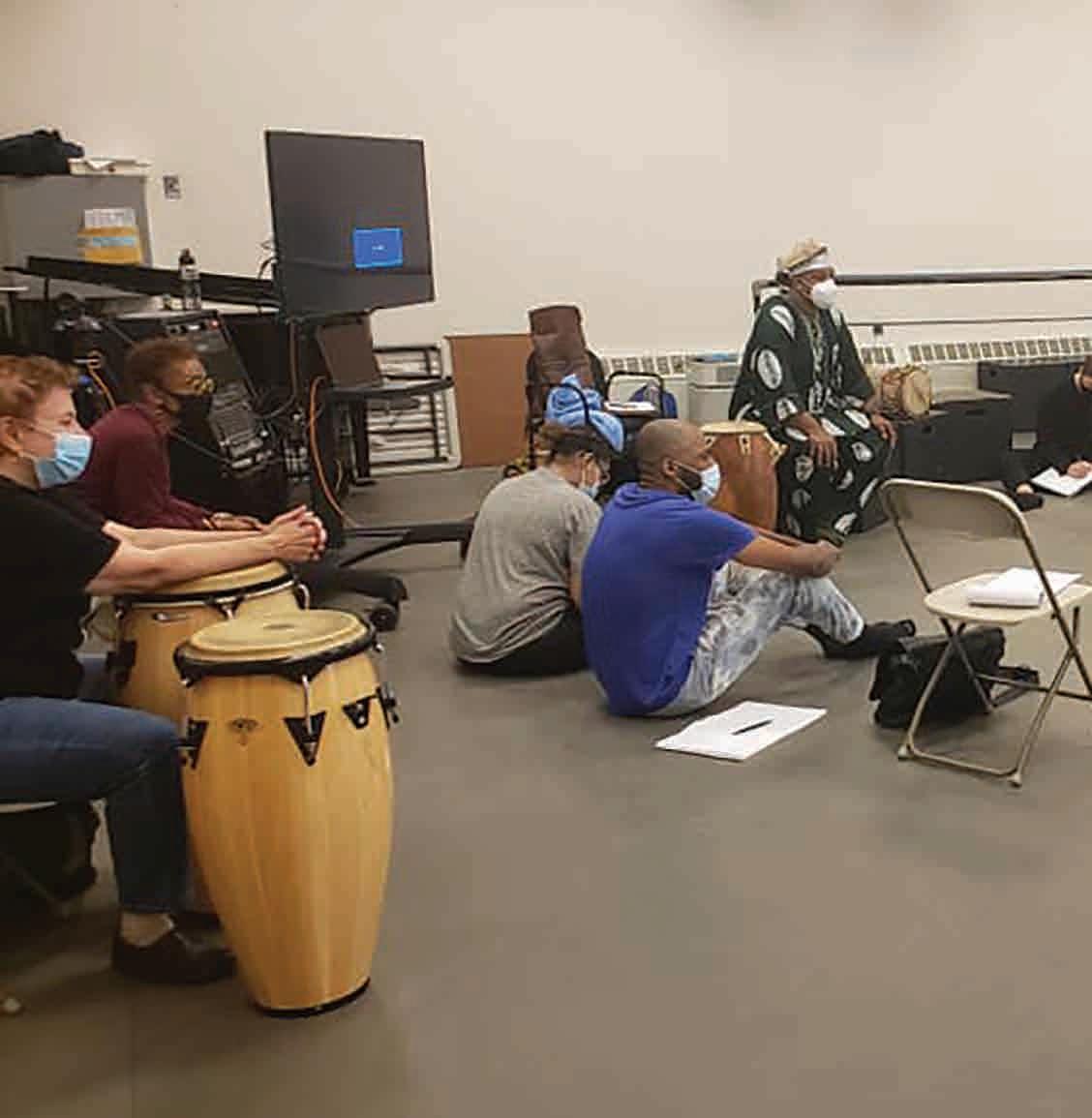
2 minute read
ABOUT AFRICANA STUDIES
At Hofstra
Africana Studies introduces students to the study of African societies, languages, and cultures. This interdisciplinary program offers a broad spectrum of courses in the humanities, social sciences, and natural sciences.
Advertisement
The creation of Hofstra’s African Studies program in 1971 was part of a nationwide trend at colleges and universities, inspired by the Civil Rights movement and Black Power movement. Black students – and indeed students of all races and ethnicities – demanded that the history and experience of African and African American people become part of the offered curriculum. Hofstra’s program was renamed Africana Studies in 2020 to reflect a combined focus on Africa and the African Diaspora.
WHY MAJOR OR MINOR IN AFRICANA STUDIES?
Africana Studies is the study of the politics, histories, and cultures of people of African origin. Students will learn how the African Diaspora, Blackness, and race have shaped the world. A major or minor in Africana Studies will strengthen a student’s academic experience in many areas, including history, economics, religion, health care, anthropology, sociology, art and literature, to name a few.
Program Requirements
The BA in Africana Studies consists of a minimum of 30 semester hours. The minor consists of 18 semester hours.
In addition to Africana Studies, students may fulfill program requirements by completing classes in Anthropology; Comparative Literature and Languages; Dance; Drama; Economics; English; French and French Literature in Translation; Geography; History; LGBTQ+ Studies; Psychology; and Sociology.
Curriculum
Courses in the Africana Studies program reflect the academic and professional aspirations of 21stcentury Hofstra students. New courses have been created since the program was renamed and revamped in 2020. Some examples include the following:
• AFST 014S:01 From Civil Rights to Black Lives Matter (FYC)
• AFST 014S:02 W.E.B. DuBois and the Project of Cultural Education (FYC)
• AFST 039: The American Experience of African Dance Practices
• AFST 043: Decolonizing the Mind: Contemporary Literature from Africa to Southeast Asia
• AFST 047: Africa, Greece, and Rome
• AFST 115: African American History to 1865
• AFST 116: African American History, 1865 to the Present
• AFST 127: Race, Sport, and the Americas
• AFST 134: Race Relations in the United States
• AFST 146: Anthropology and Social Justice
• AFST 150: Caribbean Geographies
• AFST 187E: The Revolution Will Not Be Televised
ON-CAMPUS PARTNERSHIPS
Africana Studies sponsors and co-sponsors events with campus partners such as the Office of Intercultural Engagement and Inclusion; Center for “Race,” Culture and Social Justice, Latin American and Caribbean Studies (LACS); the Hofstra Cultural Center; the Center for Civil Engagement; LGBTQ+ Studies; the Hofstra University Museum of Art; the Umoja Scholars Living-Learning Community; and various other academic departments and programs.
Chief Ayanda Clarke, Grammy Award-winning African drummer, discussed the music and dance of the African Diaspora in Professor Dyane HarveySalaam’s class, “The American Experience of African Dance Practices.”
Meet The Curriculum Committee
Our Curriculum Committee reviews and approves courses and solicits departments to cross-list courses that are already established. They also revise program requirements as needed.
Veronica Lippencott, PhD, Program Director and Adjunct Associate Professor of Global Studies and Geography
Dyane Harvey-Salaam, Adjunct Associate Professor of Dance
Robert Leonard, PhD, Professor of Linguistics
Jonathan Lightfoot, PhD, Professor of Teaching, Literacy, and Leadership
Sabine Loucif, PhD, Professor of French
Katrina Sims, PhD, Assistant Professor of History


